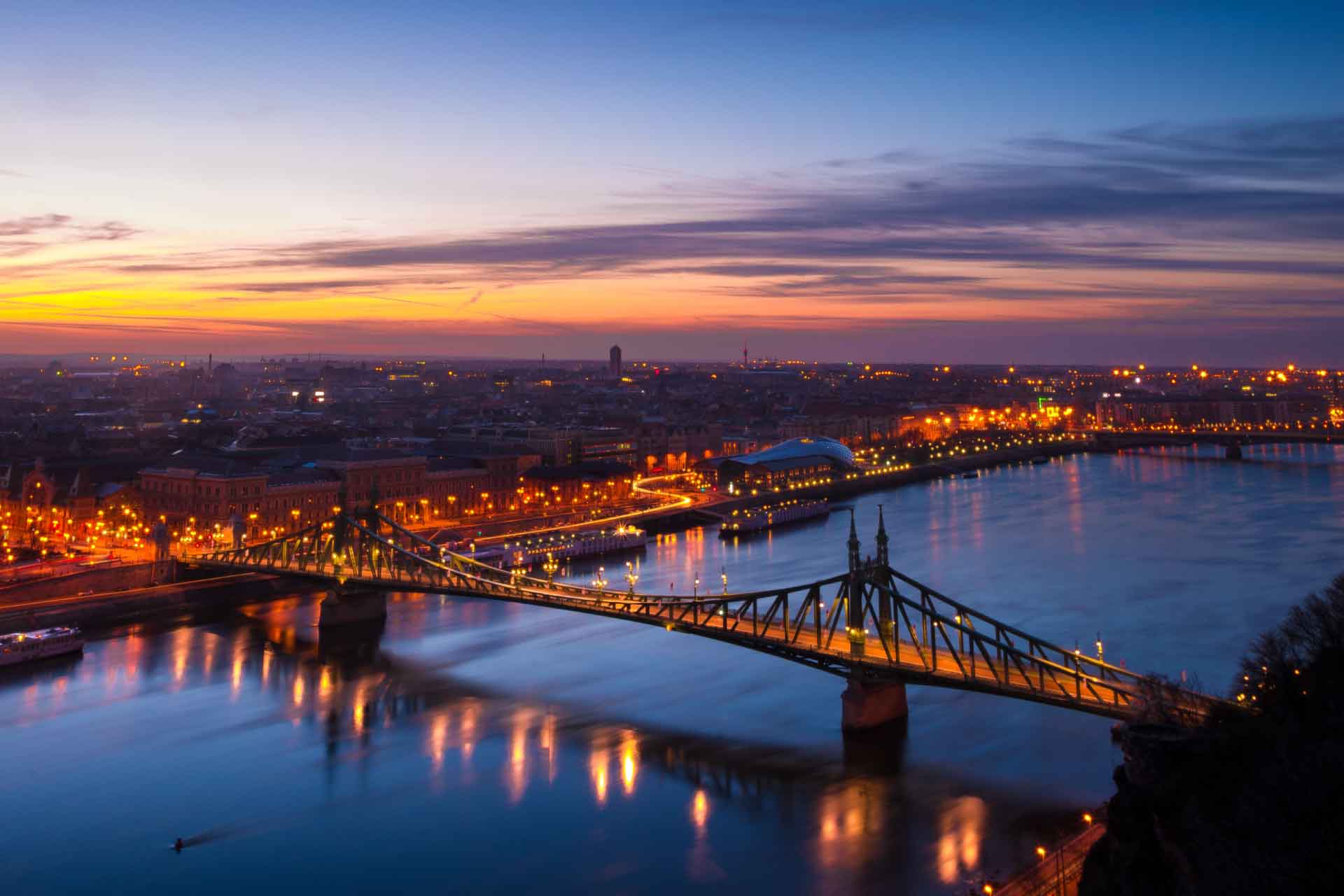
Top 7 most iconic sights along the Danube
O
C
The Hungarian capital’s two parts, Buda and Pest, used to be two different cities divided by the Danube until 1873 when they joined Óbuda and became Budapest with the river in the middle. Through centuries, many stunning sights have been established along the Danube, so we’ve collected the top 7 iconic ones where you can snap the most amazing pictures, take a bite or have a drink and enjoy the view.
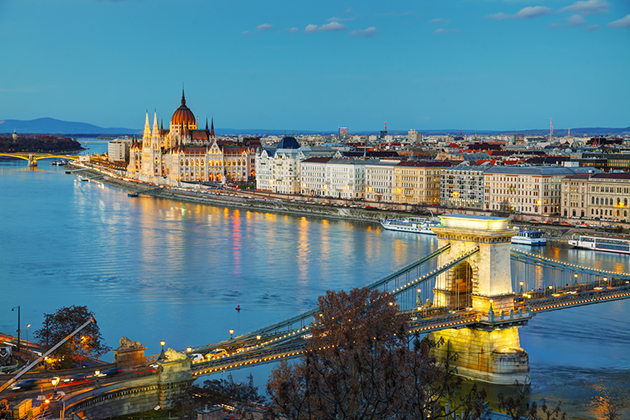
The Danube is Europe’s second largest river, originating in the Black Forest in Germany and passing many iconic sights along its route to the Black Sea. It flows through or touches the border of ten countries, which is a unique accomplishment (only the Nile’s river basin touches more with 11), and it serves as the main river for four capitals – Vienna, Bratislava, Budapest and Belgrade.
Let’s see the top 7 sights it passes in Hungary’s beautiful capital.
1. Citadella, Gellért Hill
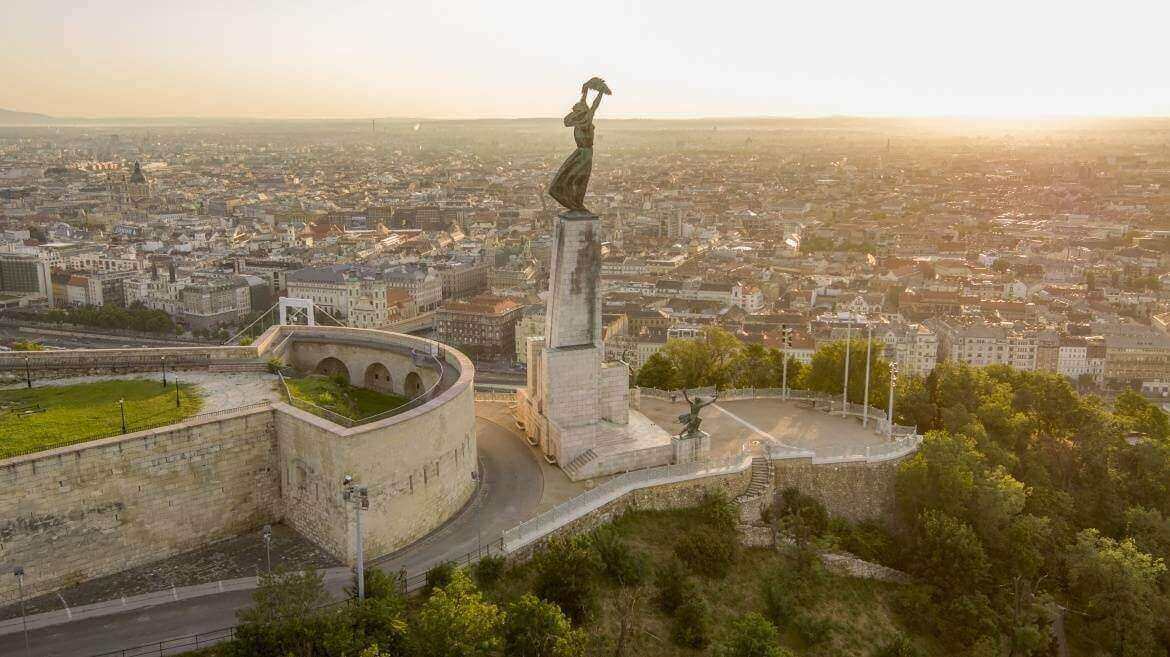
The Citadella (Hungarian for citadel) on Gellért Hill, with its rectangular shape, is a 19th century fortress, and is one of the best places to visit if you want your mind blown by the postcard-worthy panorama. Hike up the 771-feet high mountain and take a rest at the foot of the Liberty Statue (Szabadság-szobor) that commemorates those who gave their lives for Hungary’s independence and freedom.
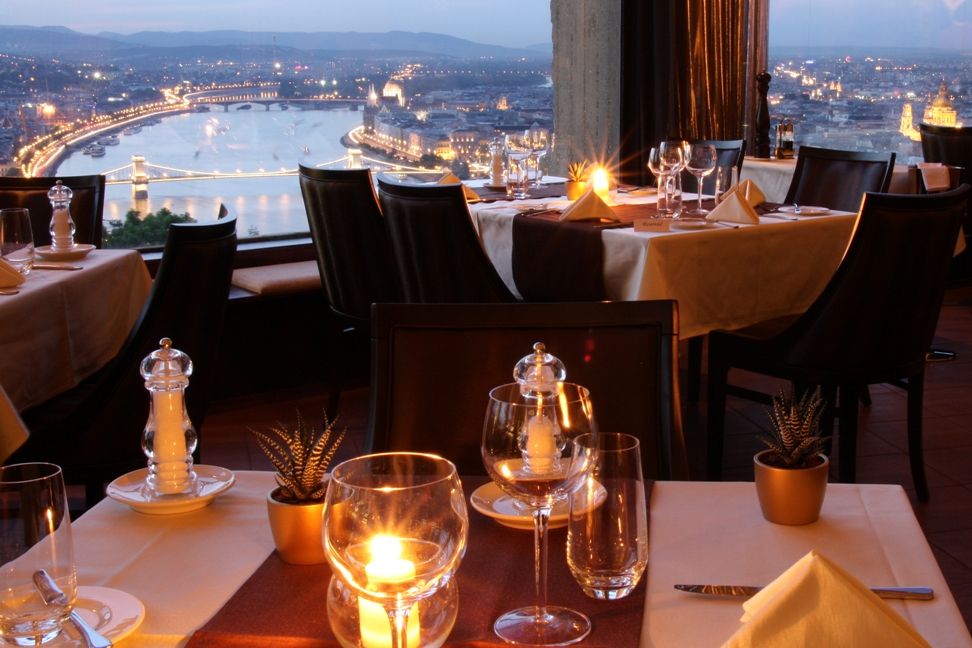
Daytime or nighttime, you’ll be able to observe both the Buda and Pest sides at your feet. Hungry for more? You can even enjoy a nice lunch or dinner up there in Citadella Panoráma Restaurant, Monday-Sunday 12pm-11pm.
2. Castle District
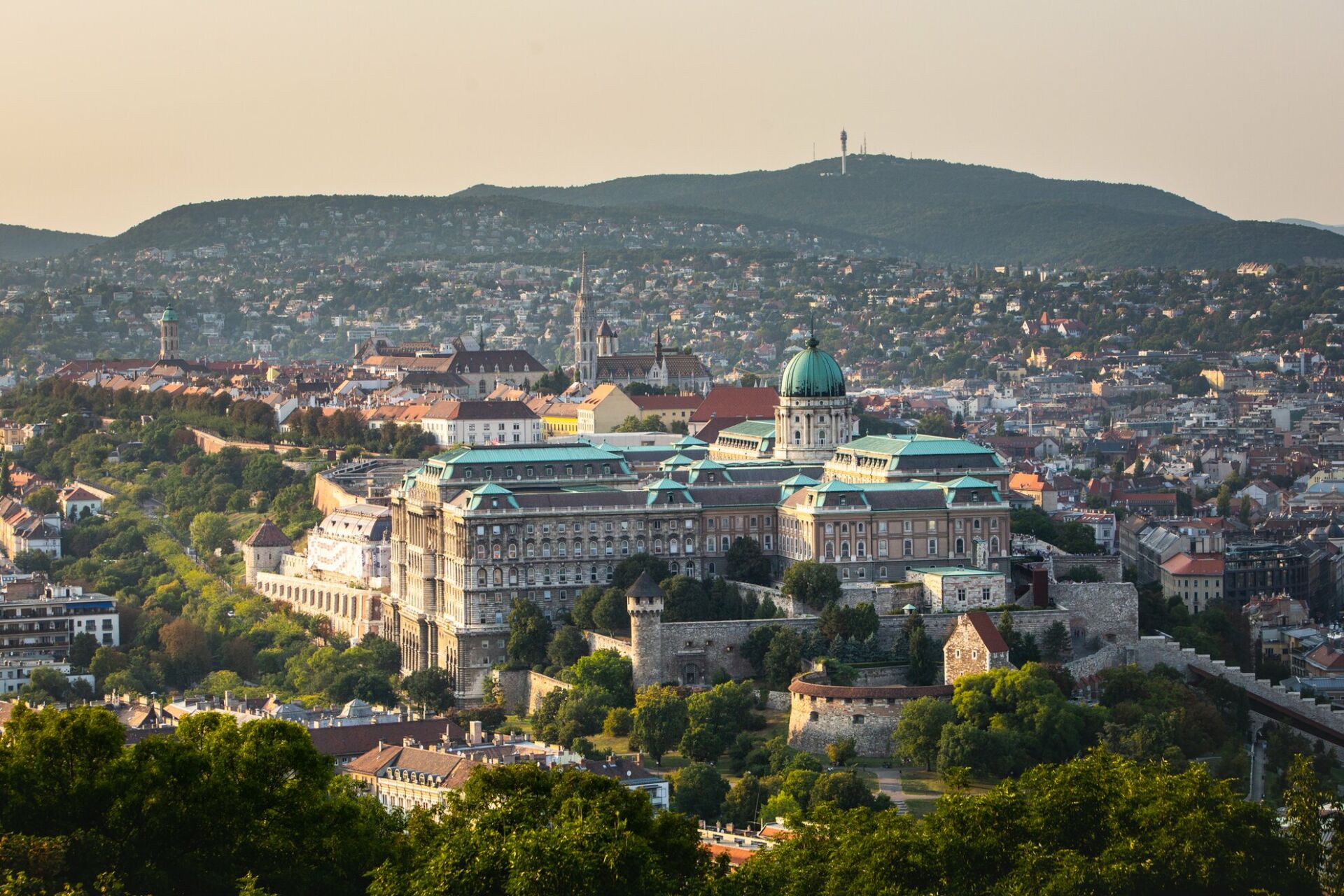
Another iconic sight along the Danube is the Castle Quarter on the Buda side with its monuments, Baroque and Neoclassical buildings and churches, and of course the Buda Castle itself. The castle was declared a UNESCO World Heritage Site in 1987, and although its current form has existed since the mid-18th century, it served as the home of Hungarian kings since 1265. The most scenic way to get up there is with the Castle Hill Funicular that connects Clark Ádám square (the Buda end of the Széchenyi Chain Bridge) and the castle, but if you’re looking for the perfect picture, you should probably take it from the Pest side of the Széchenyi Chain Bridge Budapest.
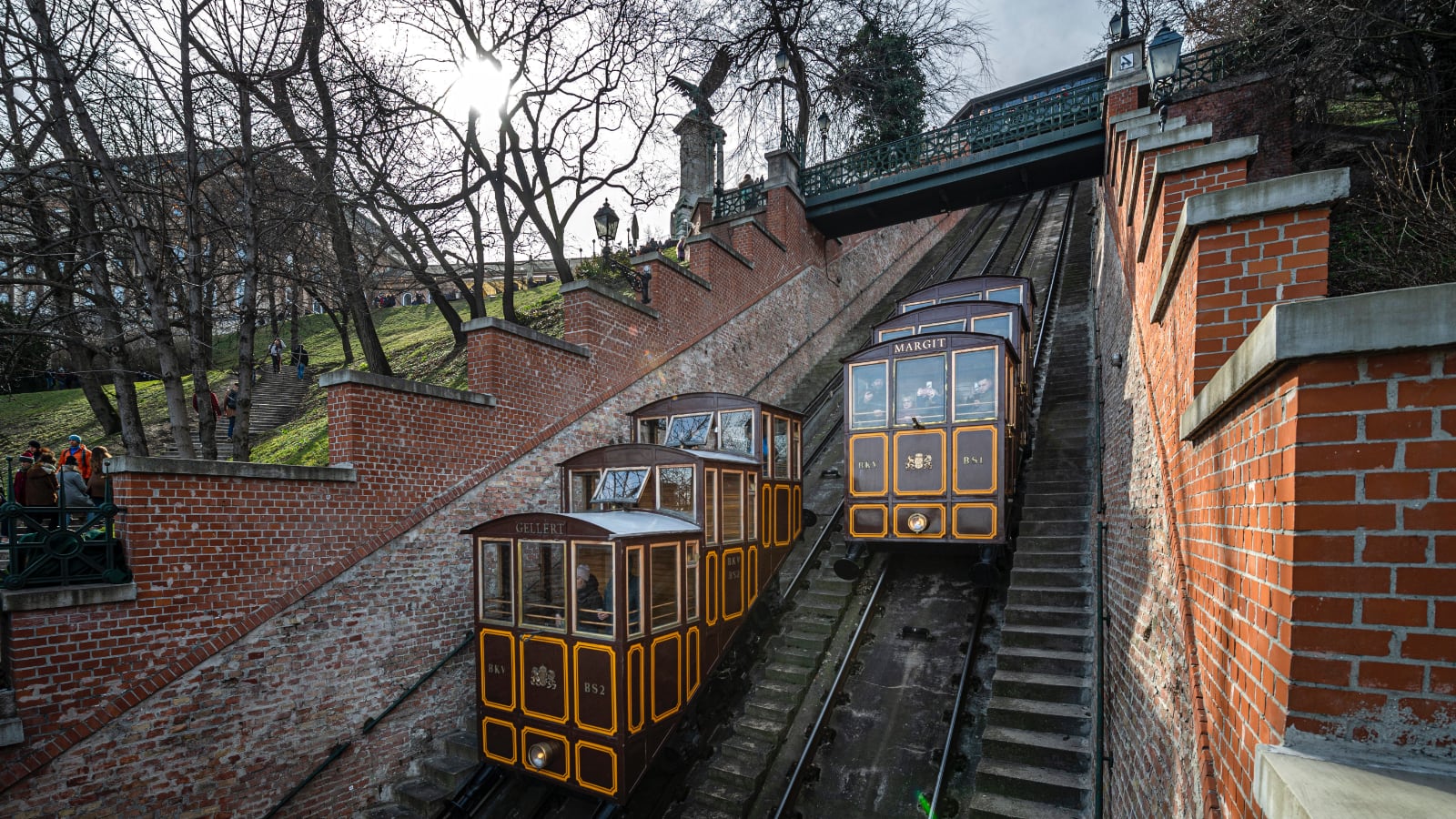
The Castle Quarter is also home to the Matthias Church (Mátyás-templom in Hungarian), a Roman Catholic church with a past dating back to the 11th century. It gained its Gothic look in the 14th century, and served as a coronation church for many kings, including King Matthias, who it was named after During the 145 years of Turkish occupation it was turned into a mosque, then it was restored to its original image in the late 19th century. It also functions as a viewpoint, so if you want to snap a photo of Budapest’s stunning panorama, be sure to check it out.
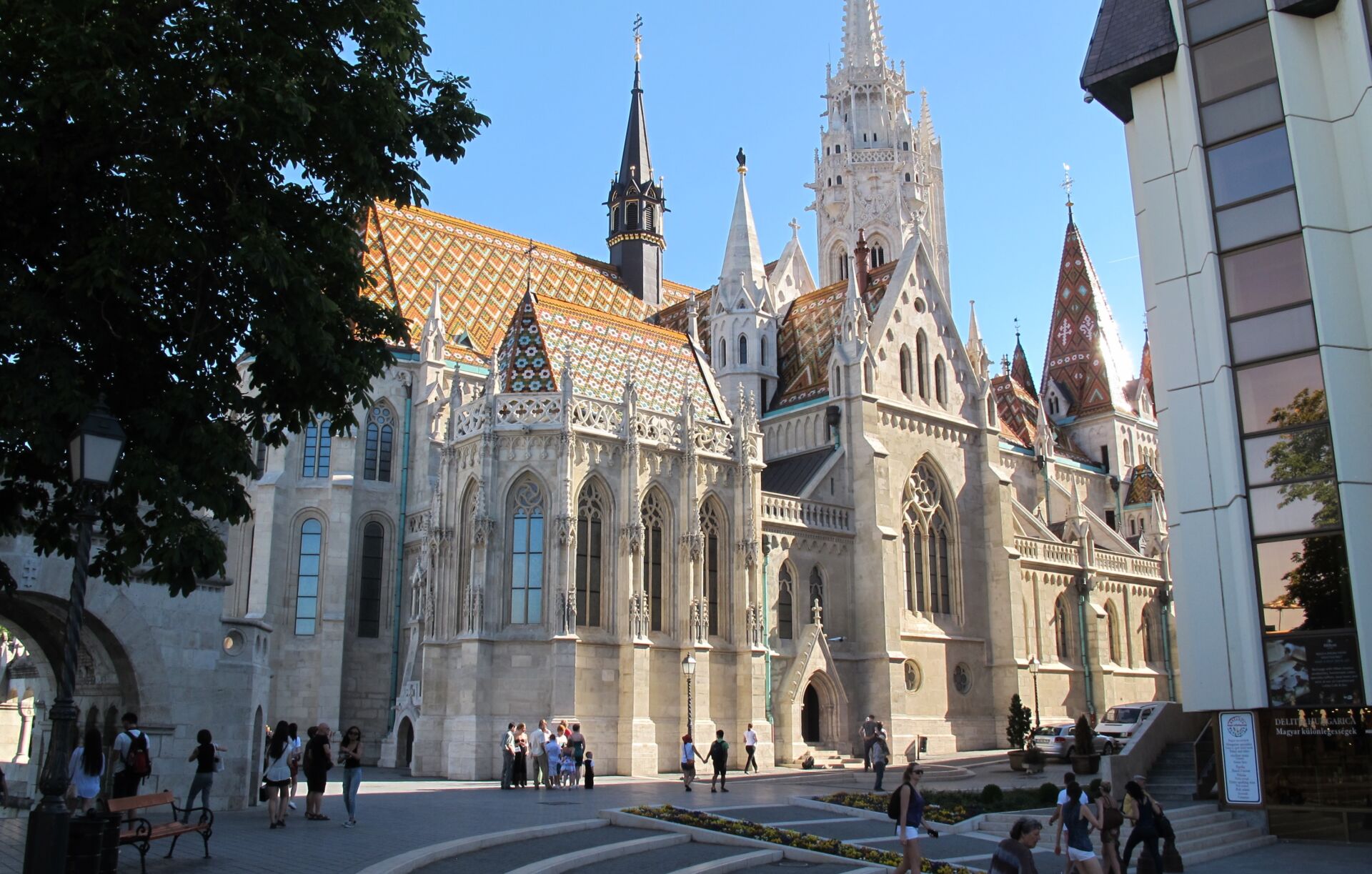
The neighbor of the Matthias Church is the Fisherman’s Bastion (Halászbástya in Hungarian), which – with its neo-Romanesque lookout terraces – gives you a truly unique and breathtaking view of the Pest side of the city. It was built shortly after the restoration of the Matthias Church, and its seven towers are supposed to represent the leaders of the seven Hungarian tribes that settled down in the Carpathian Basin to later give birth to the Hungarian Kingdom.
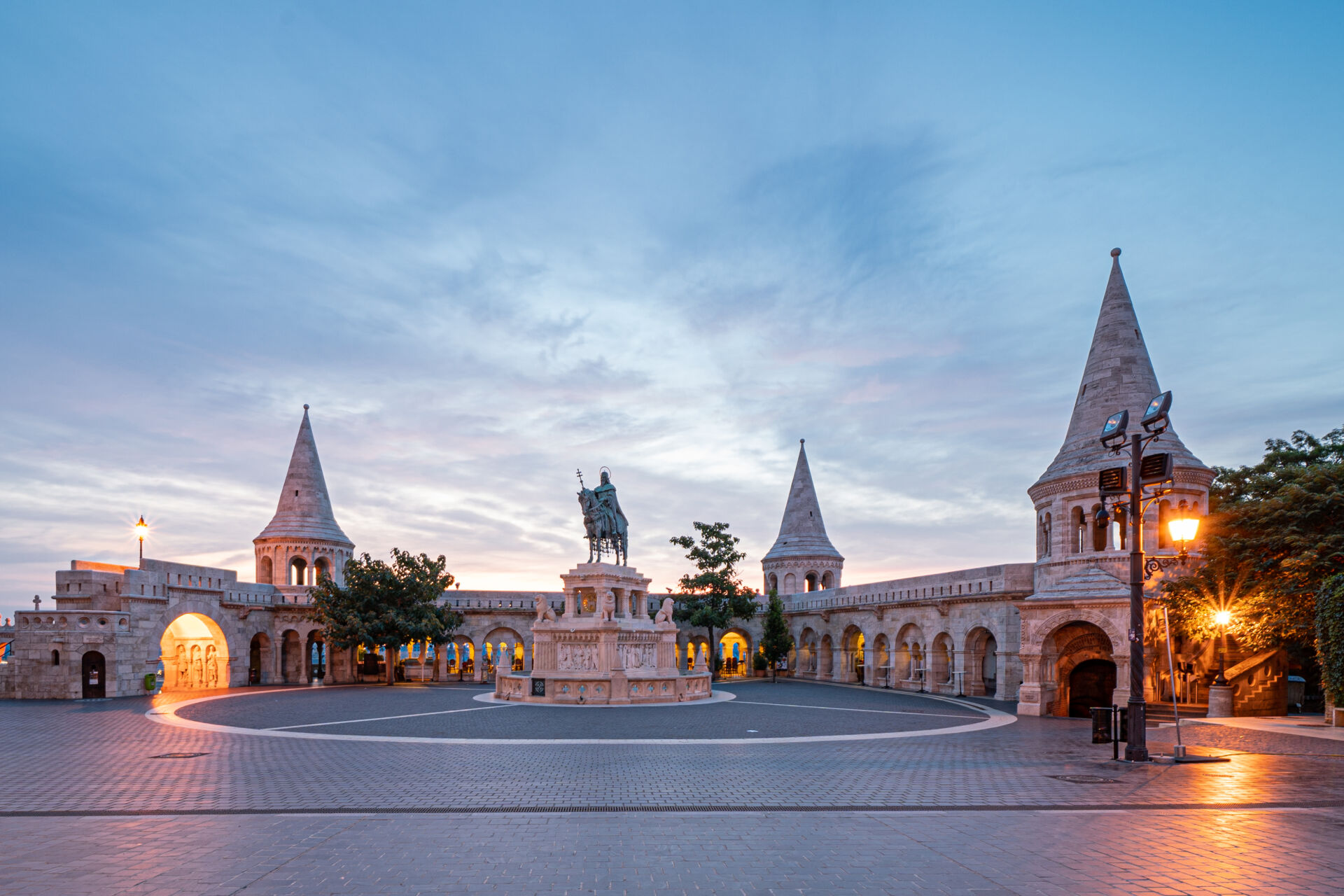
3. Hungarian Parliament Building
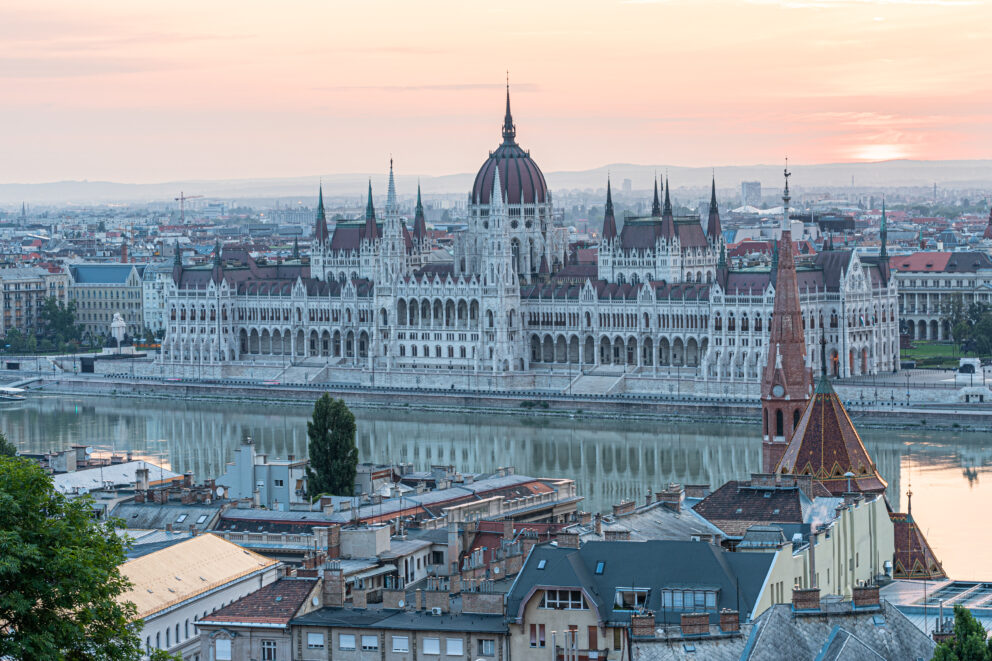
Its Hungarian name, Országház, means House of the Nation, and it’s one of the most popular tourist attractions of Budapest. The building was built in neo-Gothic style in 1902 and serves as the seat of the National Assembly of Hungary. It’s exactly 96 meters (315 feet) tall, which is a reference to 1896, Hungary’s millennium. It shares the title of highest building in Budapest with St. Stephen’s Basilica, symbolizing the equality of state and religion. Its visitor center is open from 8am until 4pm Monday-Sunday, and if it’s a national holiday, you can actually check out the crown jewels for free.
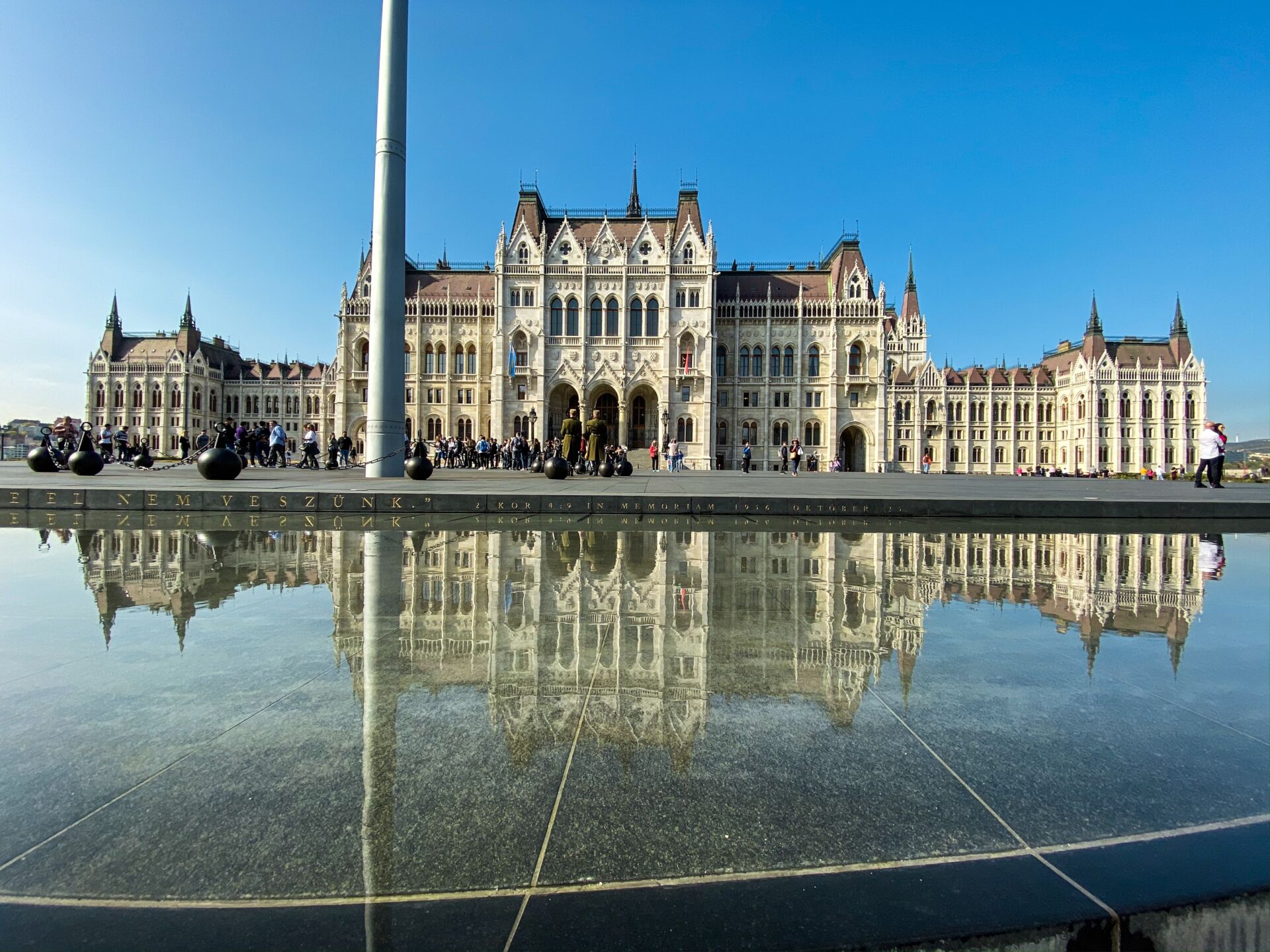
You can easily reach the Parliament by metro line 2 or tram line 2, and enjoy the view from Kossuth Lajos tér. However, if you’d like to take a picture from further back, you should take metro line 2 till Batthyány tér, and there you’ll have an amazing view of the building from the Buda side, exactly opposite of the Parliament.
4. Széchenyi Chain Bridge
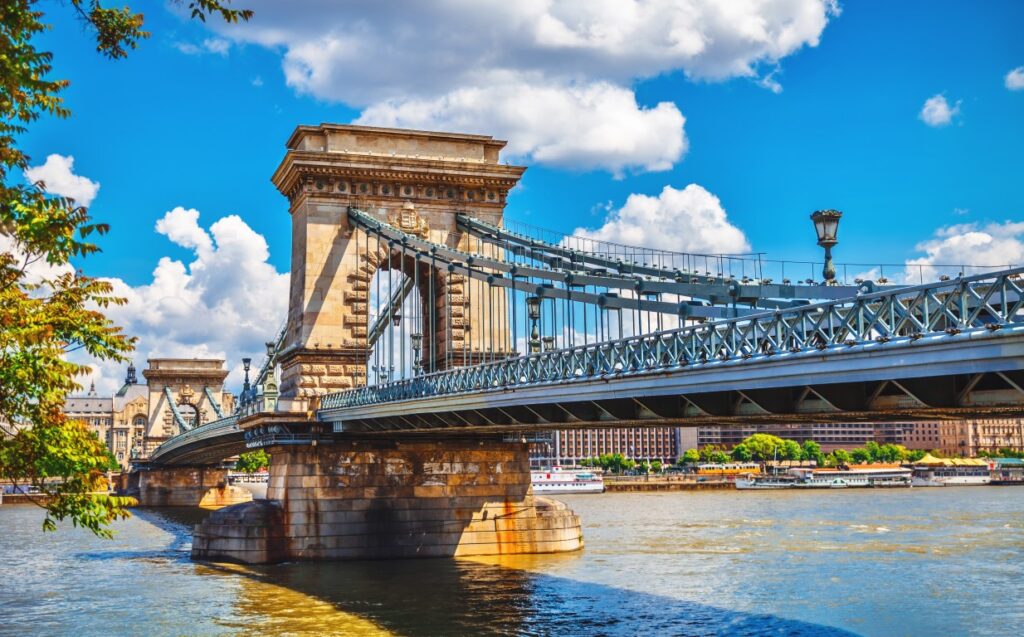
Completed in 1849, Széchenyi Chain Bridge (Széchenyi Lánchíd in Hungarian) is the most famous bridge of Budapest, and it was the first permanent bridge that connected the two sides of Budapest. It had a huge economic, social, and cultural impact as its huge chains were linking East and to the West.
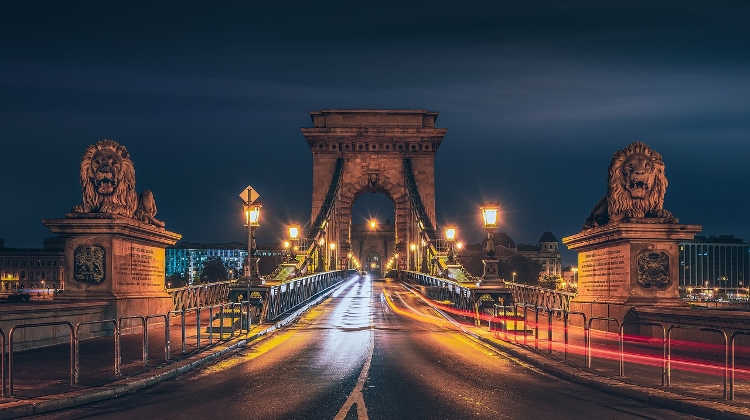
Bus number 16 and 105, as well as tram number 2 and 19 drop you off right next to the bridge, where you can sit by the river and enjoy the amazing view. If you feel like having a drink or even dancing a bit, Pontoon is right at the Pest end of the bridge – meaning you can have some fun at a party or live concert with the Hungarian Academy of Sciences behind your back or with your feet just above the Danube. Pontoon is open until 4am, so it’s a nice place to let off some steam after a long day of sightseeing.
5. Bálna
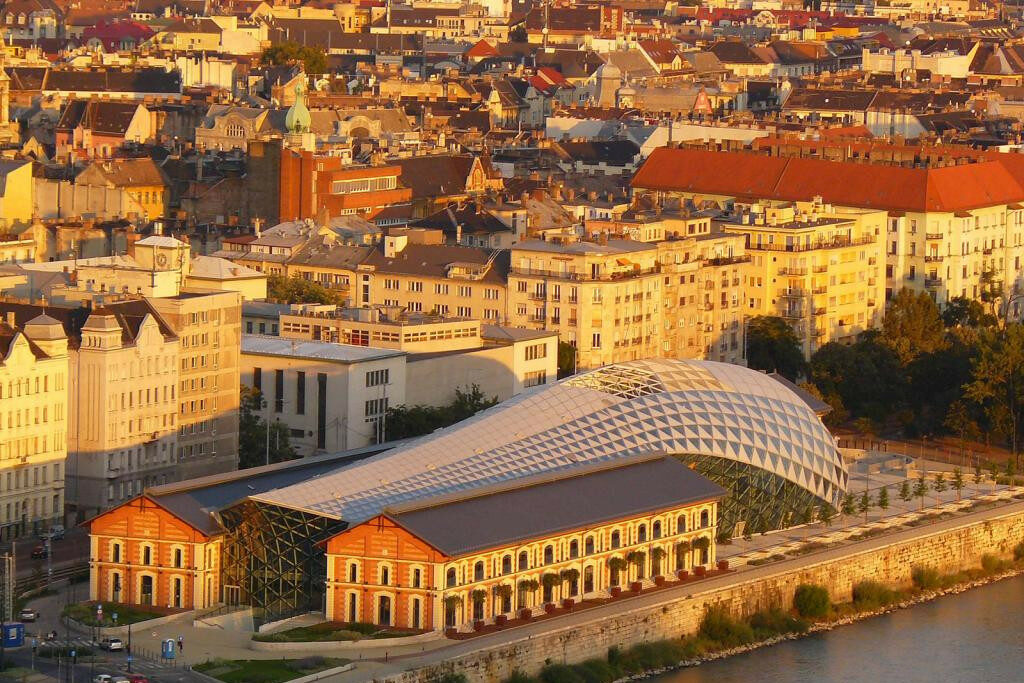
Bálna (meaning ‘whale’ in Hungarian) is a huge glass-covered building that opened in 2013, and it serves as a cultural, gastronomical and commercial center with restaurants, bistros, and cafés. It’s a unique tourist sight right by the Danube where you can sit outside on the terrace sipping on your cocktail while enjoying the spectacular view of the Buda side of the city. Getting there is easy with tram line 2, 47, 48 and 49, or metro line 4 is also a great option.
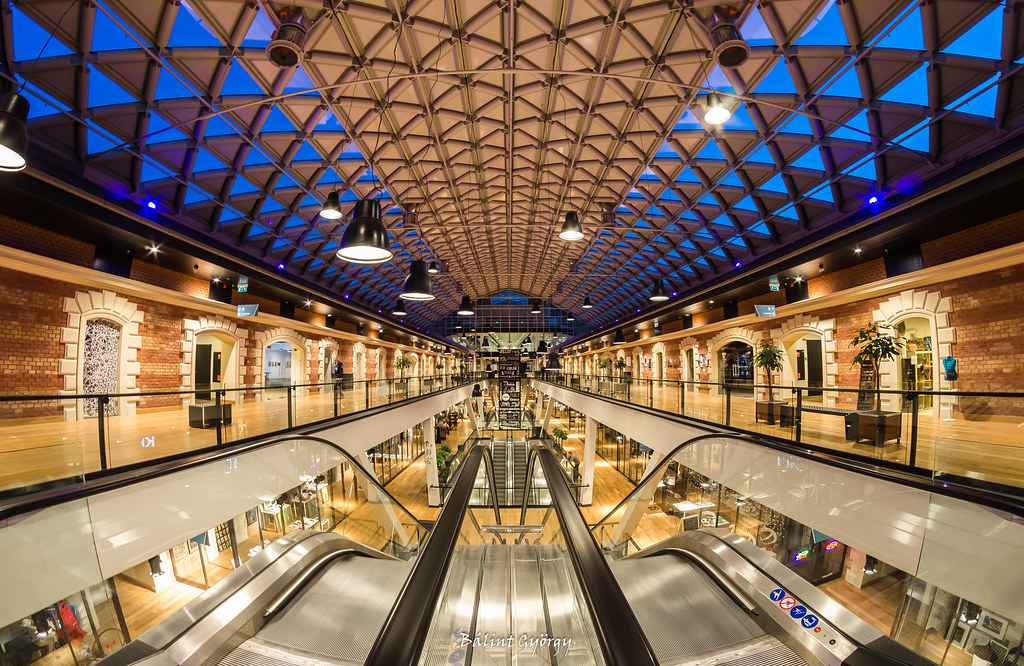
6. Shoes on the Danube Bank
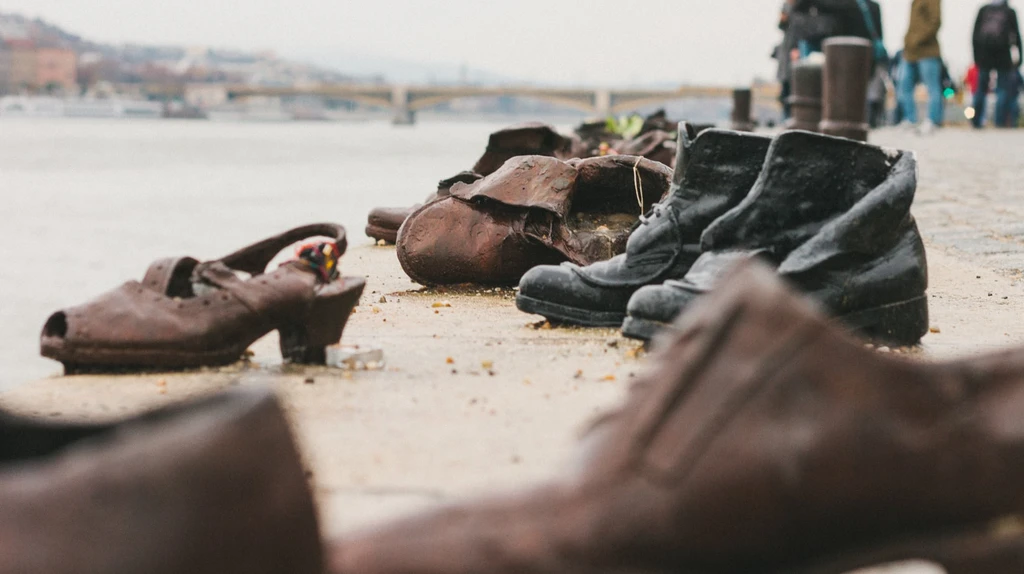
Just a few minutes away from the Parliament building, you can find 60 pairs of iron shoes right by the river. It’s a Holocaust Memorial, erected in honor of the 3500 victims (800 of them Jews) who were ordered to take off their shoes before being shot into the Danube by Arrow Cross militiamen during World War II. It was elected as the second-best public sculpture of the world in 2016.
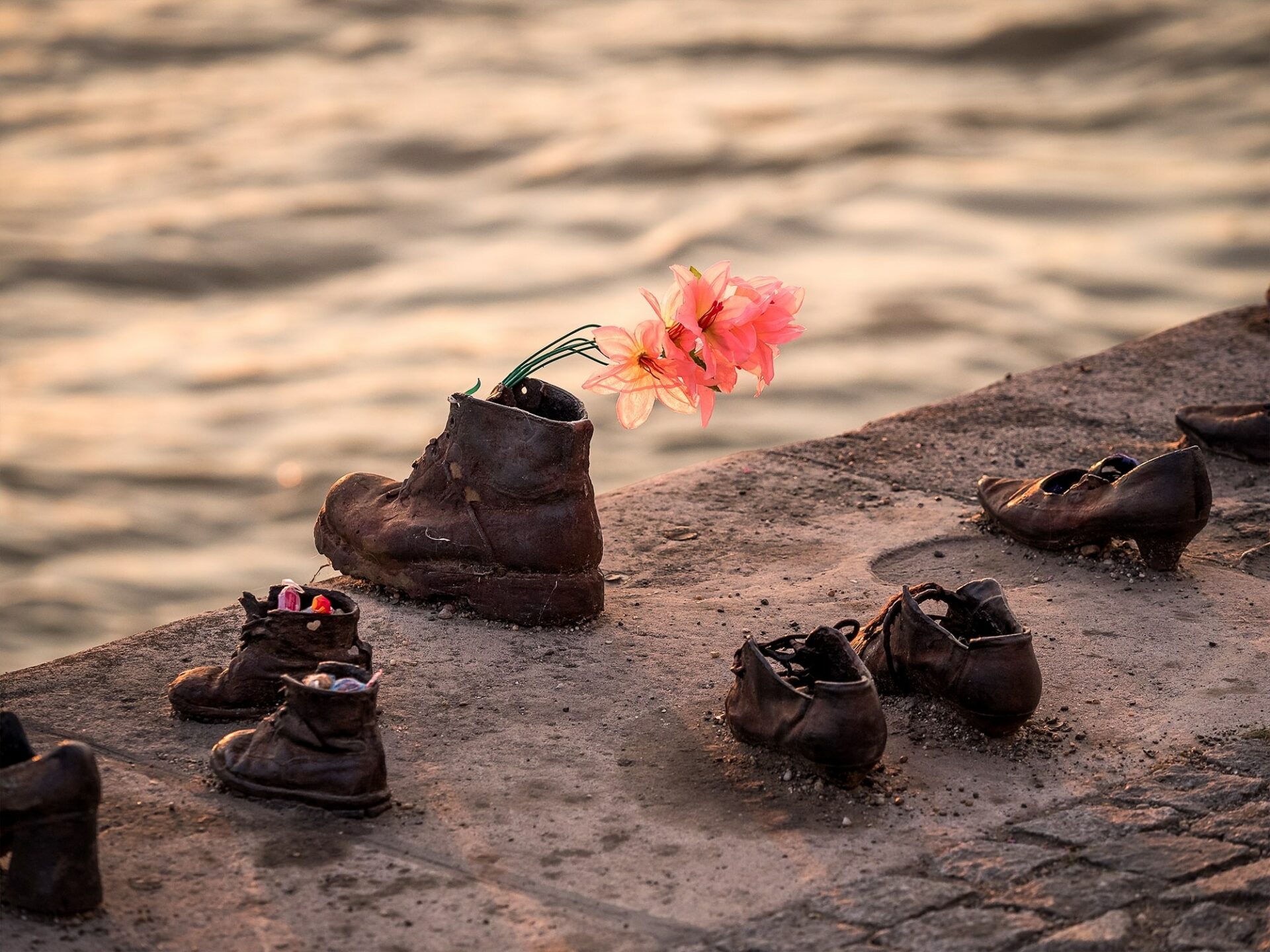
If you’re interested in World War II memorials, be sure to check out our articles on the Budapest Holocaust Memorial Center.
7. Rudas Thermal Bath
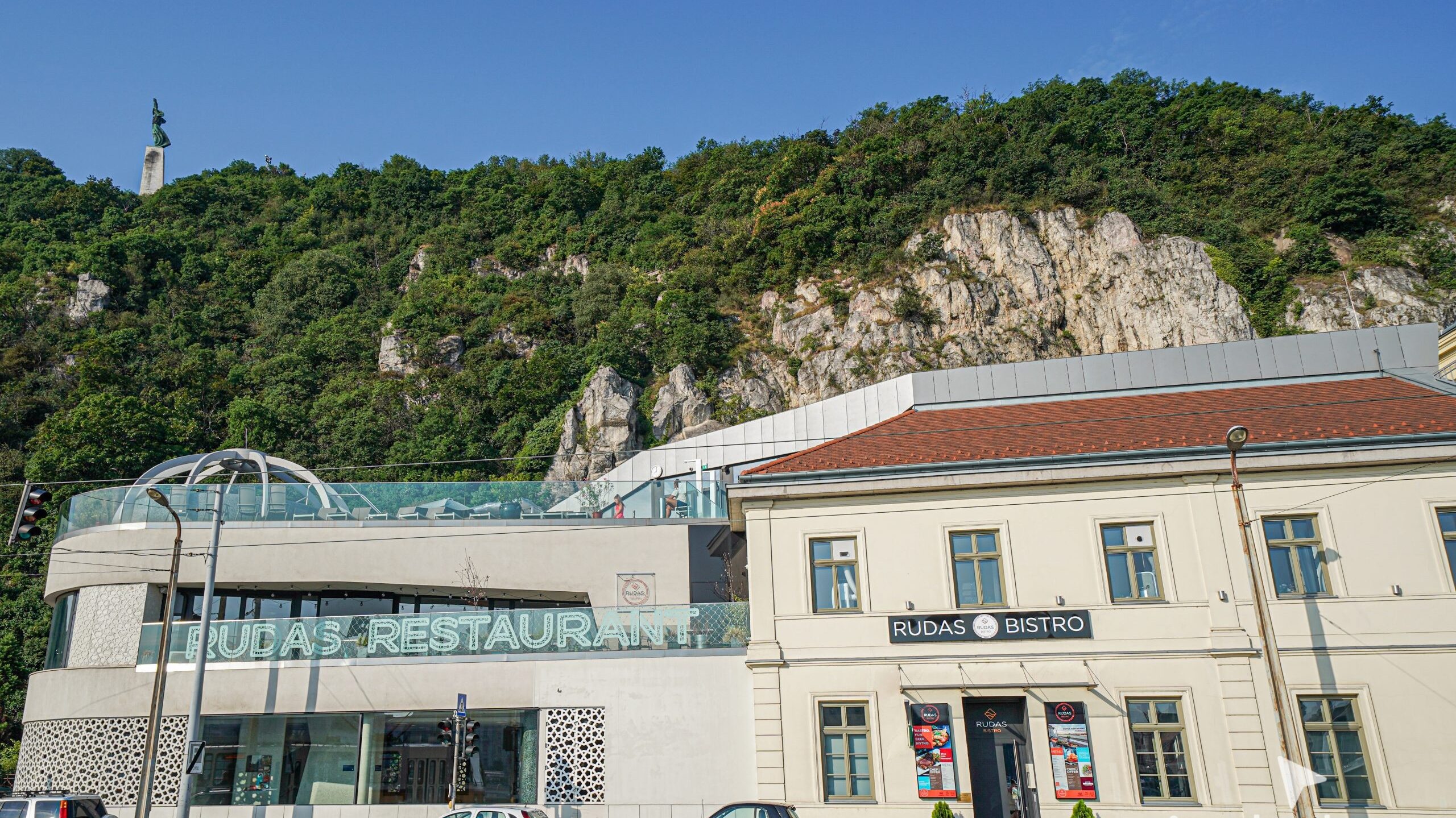
Located near the Buda end of the Elisabeth Bridge, Rudas Thermal Bath has been around since the 16th century, when Hungary was under Turkish occupation. It’s a rare gem when a large city is rich in thermal water, so missing out on Budapest’s amazing pools and stunning panoramic view from the rooftop pool would be a sin. If you’re feeling hungry afterwards, you can have a bite at the restaurant on the first floor, where they serve Turkish-Hungarian fusion food.
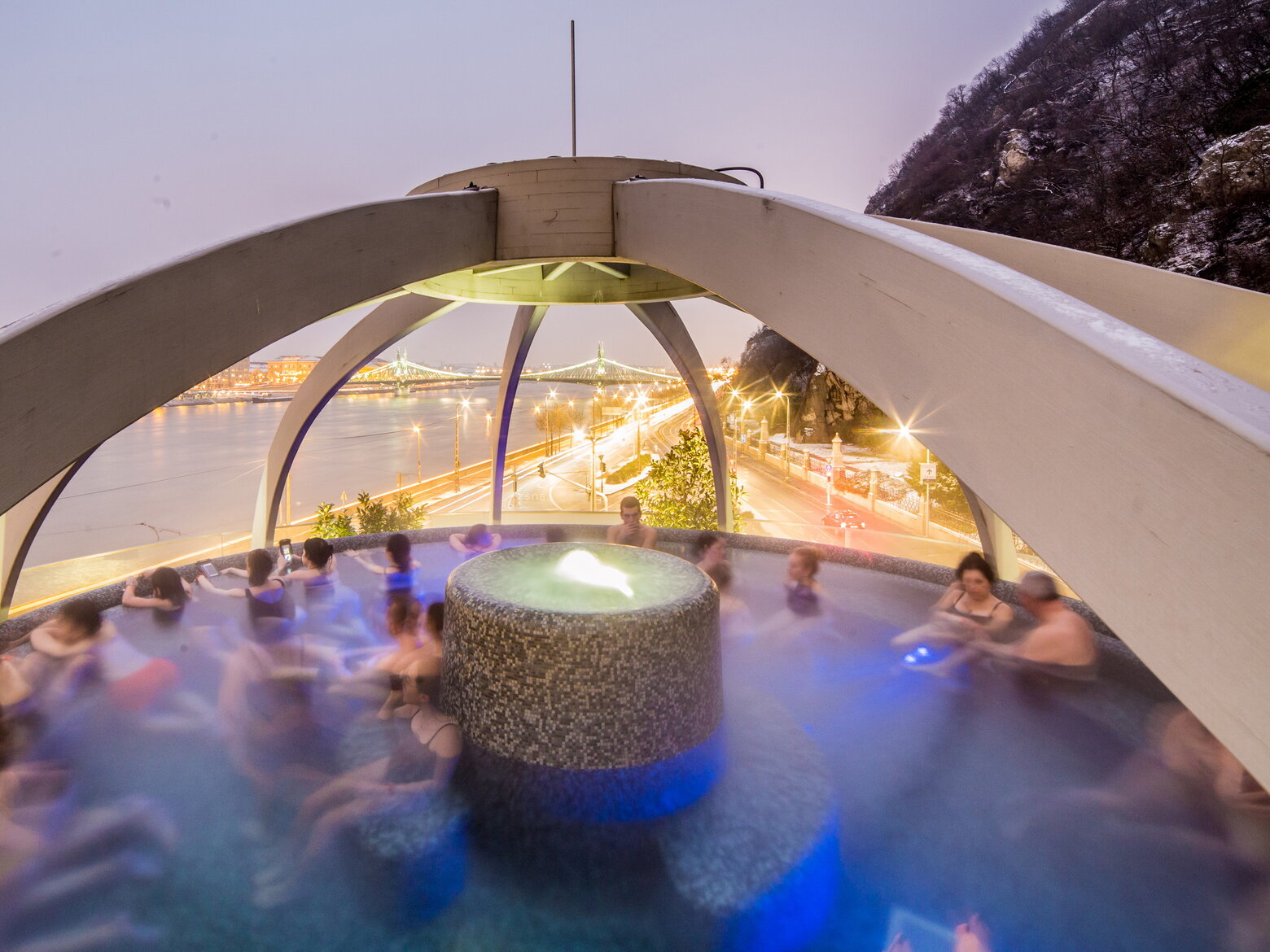
If you like splashing around in water, check out our guides on thermal baths and water parks in and around Budapest.
Summary of
Rudas Thermal Bath
tuesday 06:00:00 – 22:00:00
wednesday 06:00:00 – 22:00:00
thursday 06:00:00 – 22:00:00
friday 06:00:00 – 22:00:00
saturday 06:00:00 – 04:00:00
sunday 06:00:00 – 04:00:00
Explore the city’s beautiful sights on a river cruise
Want to take your sightseeing experience to another level? Hop on a river cruise and adore the city’s magnificent bridges of Budapest and beautiful panorama while rocking gently on waves of the Danube. Food and drinks included!
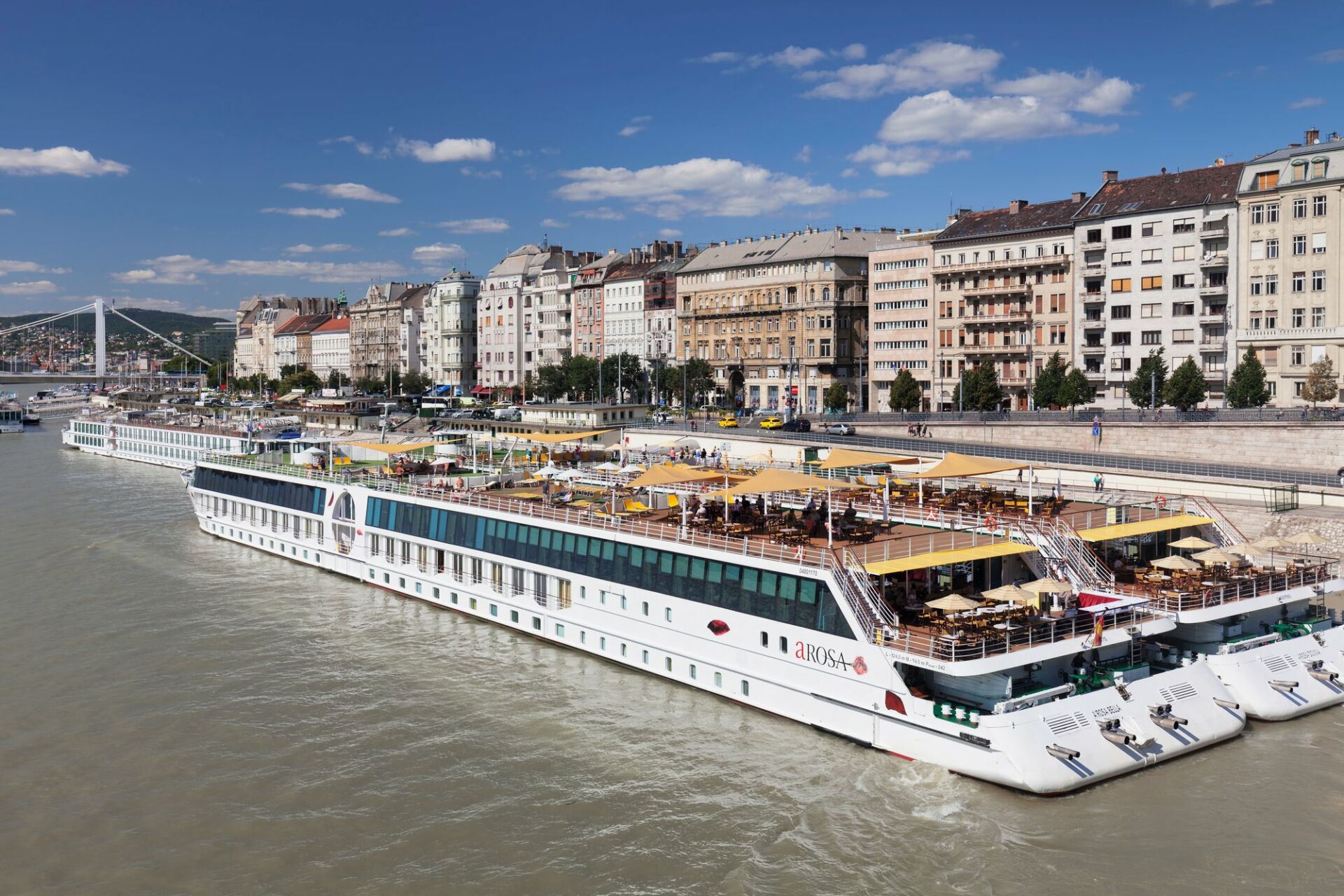
Budapest is packed with iconic sights, and quite a few of them is fairly close to the Danube, so if you’d like to see all of them, just hop on a riverboat operated by the city’s national transportation system, and prepare to be amazed by the beautiful panorama and landmarks.
Q & A
- What are the most iconic sights along the Danube?
- There are many iconic sights along the Danube, such as the Citadella on Gellért Hill, the Castle District with its landmarks, the Hungarian Parliament Building and the Széchenyi Chain Bridge.
- Is it easy to walk along the Danube to see the best sights?
- There are promenades on both sides of the river, so you can easily reach the most famous sights you’d like to visit along the Danube.
- Are there famous sights along the Danube?
- Many of the most iconic sights of Budapest are along the Danube, like the Citadella on Gellért Hill, the Castle Quarter with its landmarks, the Hungarian Parliament Building, and the Széchenyi Chain Bridge.
Related Articles
-

Find the best apartment for rent in Budapest
-

Your ultimate itinerary to exploring Budapest in 1, 2 or 3 days
-

Walking Tours in Budapest
-

Kosher Budapest: Discover the Jewish heritage of the Hungarian capital
-

The 5 coolest boutique hotels in Budapest
-
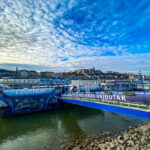
The Legend of the Danube: can’t miss the Legenda Boat trips in Budapest
The bridges of Budapest are marvelous. If you want to learn more about these amazing structures, read our article about the topic.
Where is Budapest? What pleasures does this amazing city offer to the tourists? If you are interested, you should read our article on the topic. As everyone knows, who once visited Budapest, this is the city, which you will never forget in your life!
Chain bridge Budapest – the amazing construction that you have to visit if you are in the city!




Your experience is important.
Anything you have not found?
Ask a Question
Please log in to write a review.
There is no review yet.